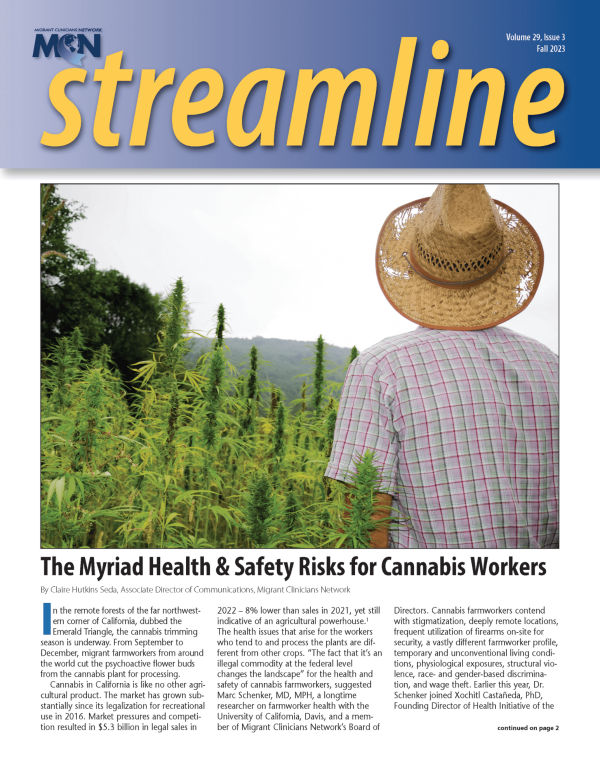Childhood is a crucial period of development, shaping an individual's physical and mental health throughout their life. However, for some children and adults, their early years have been harmed by adverse childhood experiences (ACEs). ACEs encompass a range of traumatic events during childhood, such as abuse, neglect, household dysfunction, and other forms of adversity. Research has shown that children who have experienced a high number of ACEs and do not have secure, trusting relationships with parents or caregivers to help buffer these experiences are at an elevated risk of developing chronic physical and mental health conditions, including depression. When the effects of ACEs add up over time throughout life, individuals can develop toxic stress. It is important to highlight that not all stress is bad. Stress is a natural response, and it signals our bodies to prepare for a perceived threat. However, when a child experiences prolonged, strong, and frequent adversities, toxic stress occurs. Toxic stress from ACEs can change the brain’s stress response system and have lasting negative effects on health and well-being well into adulthood.
Research shows that some groups are more likely to experience ACEs than others. Black and Latinx youth experience greater numbers of ACEs compared to white youth.1 Agricultural worker communities also face unique challenges that may increase the risk of ACEs, including low wages, long working hours, exposure to harmful pesticides, and lack of access to health care and education.2 Unfortunately, ACEs are common, and the effects of these events can add up over time. The CDC reports that about 64% of US adults report having at least one type of ACE before the age of 18.3 As the number of ACEs increases, the risk for negative health outcomes also increases. The need for early screening and intervention is evident and opportunities to mitigate the effects of ACEs do exist. Since depression often stems from ACEs, depression screening alongside ACEs screening can provide additional insight into a patient’s well-being.
Screening for ACEs can mitigate toxic stress and improve health outcomes. California has been at the forefront of ACEs screening and response and has been actively pushing clinicians to educate and screen for ACEs. However, for those who have been historically marginalized, disclosing childhood adversity and traumatic events can be difficult, making it critical for community health centers (CHCs) to be safe and non-judgmental spaces.
Migrant Clinicians Network served as an evaluation partner for the community-based portion of Project NACES: Addressing ACEs and Toxic Stress in Farmworker Communities. For the project, MCN partnered with Futures Without Violence, Alianza Nacional de Campesinas, Lideres Campesinas, and RAND, with funding from California's ACEs Aware initiative through the UCLA-UCSF ACEs Aware Family Resilience Network (UCAAN) pilot program. The aim of the project was to collaborate with agricultural worker leaders and two community health centers to address the health impact of ACEs and toxic stress in agricultural worker communities in California through ACEs education, screening, and response. This project underscored the significance of community-based organizations’ (CBOs) involvement in educational outreach efforts that included working together with the community to build educational materials and resources. Trust in the health care system is crucial to address sensitive topics like ACEs and toxic stress. The agricultural worker leaders of this project played an important role in initiating trust with CHCs. As trusted members of the community, the agricultural worker leaders engaged in conversations and shared their knowledge about ACEs that acknowledged the community’s culture, practices, and lived experiences. In non-agricultural worker communities, community health workers (CHWs) can engage their communities in the same way. CHWs are embedded in their communities, understand the challenges faced, and with training can be well equipped to engage in sensitive discussions around ACEs, which will lay the foundation for CHCs to continue the conversation and facilitate ACEs screening.
ACEs screening can help clinicians assess the risk of toxic stress and potentially reduce negative health outcomes. Utilizing CHWs and CBOs to build educational materials and resources can transform the way communities think of ACEs. Resources to aid clinicians in understanding, screening, and managing ACEs include the Centers for Disease Control and Prevention (CDC) and the California’s ACEs Aware Initiative.
Resources:
To learn more about ACEs, please visit https://www.cdc.gov/violenceprevention/aces/index.html
To read more about California’s ACEs Aware Initiative, please visit https://www.acesaware.org/
References:
1 Liu SR, Kia-Keating M, Nylund-Gibson K, Barnett ML. Co-Occurring Youth Profiles of Adverse Childhood Experiences and Protective Factors: Associations with Health, Resilience, and Racial Disparities. Am J Community Psychol. 2020;65(1-2):173-186. doi:10.1002/ajcp.12387
2 University of California, Merced and California Department of Public Health. Farmworker Health in California: Health in a Time of Contagion, Drought, and Climate Change. https://clc.ucmerced.edu/sites/clc.ucmerced.edu/files/page/documents/fwhs_report_2.2.2383.pdf
3 Centers for Disease Control and Prevention. Violence Prevention. Fast Facts: What are adverse childhood experiences? https://www.cdc.gov/violenceprevention/aces/fastfact.html
